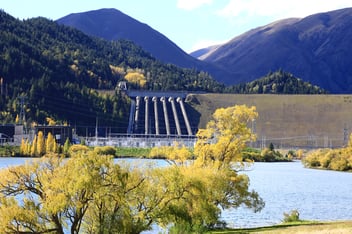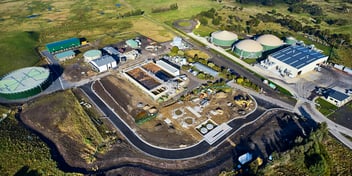Abergeldie Energy to build hydrogen storage facilities
Following several years of research and development, leading infrastructure provision company Abergeldie Complex Infrastructure has announced the establishment of a renewable energy division, Abergeldie Energy.
With over 25 years of experience in providing the complex infrastructure needed to build better communities, Abergeldie is now positioned to apply its world-leading technology to help with hydrogen production efforts, as well as grid energy stabilisation.
“Abergeldie’s Australian portfolio is divided into two main delivery teams. Abergeldie Infrastructure, comprising of road, rail and underground infrastructure projects and Abergeldie Utilities, which is predominantly focused on water infrastructure and accounts for about half of what Abergeldie does,” Abergeldie Complex Infrastructure Managing Director Mick Boyle said.
“We are involved in a long-term program of works with Sydney Water and Melbourne Water, as well as carrying out other water infrastructure and pipeline rehabilitation services for councils and water authorities right across the East coast of Australia.
“But we're also a tunnelling contractor, often for water authorities. Our biggest tunnelling project at the moment, in joint venture with Ghella, is the Central Interceptor project in Auckland for Watercare. The Central interceptor will increase the trunk sewer system of Auckland and help make waterways cleaner by reducing the wet weather overflows into Auckland Harbour.”
Boyle said that while Abergeldie continues to facilitate water utility works both in Australia and New Zealand, the company is ready to start applying its rig drilling capabilities to support clean energy production and delivery to the grid.
“In terms of our work in the underground space, we have developed a world-leading blind boring technology. We've designed and built the biggest drill rigs in the world. To date this technology has been applied to providing large diameter ventilation shafts for coal mines” he said.
“Over the past five years, we've been working to see how this blind boring technology could be utilised for other objectives. We know the world has to head away from coal-based energy production and we want to be a part of that transition.
“We are now looking to apply our world-leading drilling technology to support the transition to a carbon-neutral economy.”
Boyle said Abergeldie’s research suggested two key areas where the company can apply its technology to help facilitate carbon-neutral energy production, including the creation of hydrogen storage facilities and energy grid stabilisation.
“One of the areas where we think we can contribute to significant savings and increased capability is in hydrogen storage. At the moment, gas storage tanks are a very expensive part of the hydrogen process. By drilling a deep shaft, we are able to utilise the surrounding ground to much more economically resist the high gas pressures required in hydrogen storage” he said.
“The other area where we think we can be of significant assistance is in grid stabilisation and energy storage. By suspending a heavy weight in a deep shaft, we can help stabilise the frequency in the electricity grid that sometimes comes with large volumes of solar energy in particular.
“By applying a weight with a winch operated by more standard electrical motors, we can help stabilise the frequency of the electricity in the grid. It also has the potential to offer an alternative to batteries; it can provide power at very quick releases as a battery would. This helps with responding to short-term shortages in the grid as well.”
Boyle said Abergeldie’s energy infrastructure offerings are an exciting new chapter in the company’s history, particularly in terms of helping to facilitate the production and use of what he believes will become one of the world’s most valuable energy commodities.
“We haven't been as efficient as we need to be with energy. Our aim is to help by providing a very safe hydrogen storage method underground that is cheaper, safer, and doesn’t require the space needed for keeping large tanks above ground,” he said.
“Hydrogen is a very valuable commodity. And if you can produce it, then you're going to want to store it. At the moment it's reasonably expensive to produce and very expensive to store. But if we can reduce the cost of energy, then the production of hydrogen will reduce, too.”


